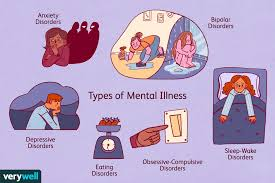A nurse is developing a care plan for a newly admitted client who has schizophrenia and experiences frequent hallucinations and paranoid delusions. Which of the following actions should the nurse plan to take?
Directly tell the client that the delusions are not real.
Use frequent touch to provide client support.
Place the client in seclusion if visual hallucinations are present.
Limit the number of questions asked during assessments.
The Correct Answer is D
Choice A Reason:
Directly telling a client that their delusions are not real is not typically recommended. This approach can be confrontational and may lead to increased anxiety or agitation in the client. It's important to maintain a therapeutic relationship by validating the client's feelings and working within their current reality, rather than directly challenging their perceptions.
Choice B Reason:
Using frequent touch to provide support may not be appropriate for all clients, especially those with schizophrenia who may have altered perceptions of reality. Some individuals may find touch comforting, while others may perceive it as threatening or invasive. It's crucial to assess each client's comfort level with physical contact and proceed accordingly.
Choice C Reason:
Placing a client in seclusion can be a traumatic experience and is generally considered a last resort when other interventions have failed and the client is a danger to themselves or others. Seclusion should not be used solely because a client is experiencing visual hallucinations.
Choice D Reason:
Limiting the number of questions during assessments can help reduce the potential for overwhelming the client. Clients with schizophrenia may have difficulty processing too much information at once, and a barrage of questions can be stressful. Simplifying communication and allowing the client to focus on one question at a time can be more effective.
Nursing Test Bank
Naxlex Comprehensive Predictor Exams
Related Questions
Correct Answer is A
Explanation
Choice A Reason:
Supporting the client's wish to refuse prescribed medications is a direct demonstration of respecting the client's autonomy. Autonomy in nursing is the right to self-determination, where patients are provided with adequate information to make their own decisions based on their beliefs and values. By supporting the client's decision, the nurse acknowledges the client's capacity to make informed choices about their own health care, even if the choice is different from what the medical team suggests.
Choice B Reason:
Ensuring that the client understands expectations for participation is more about informed consent and education rather than autonomy. While it is related to autonomy, it does not directly demonstrate the ethical concept since it does not involve a decision made by the client.
Choice C Reason:
Explaining unit rules and policies about unacceptable behaviors is part of the education process and setting boundaries within the healthcare environment. This action is necessary for all clients but does not specifically address the client's autonomy in making personal health decisions.
Choice D Reason:
Encouraging client feedback about satisfaction with the facility experience is a way to involve clients in the evaluation process of the facility's services. While this can be seen as respecting the client's opinions, it is not a direct action of supporting the client's autonomous decisions regarding their treatment plan

Correct Answer is ["A","D"]
Explanation
Choice A Reason:
Blunted affect refers to a significant reduction in the intensity of emotional expression. In the context of schizophrenia, a person with blunted affect may show less facial expression, have diminished expressive gestures, and a monotone voice. This symptom reflects a decrease in the expression of emotions, which is characteristic of the negative symptoms of schizophrenia.
Choice B Reason:
Delusions are a type of positive symptom of schizophrenia, not a negative one. They are false beliefs that are not based in reality, such as thinking one has superpowers or is being persecuted. Delusions represent an excess or distortion of normal functions.
Choice C Reason:
Poor judgment is not typically classified as a negative symptom of schizophrenia. It can be a consequence of cognitive impairments or positive symptoms like delusions but is not a negative symptom itself.
Choice D Reason:
Anhedonia is the inability to feel pleasure and is a core negative symptom of schizophrenia. Individuals with anhedonia may not enjoy activities that they used to find pleasurable, which can significantly impact their quality of life.
Choice E Reason:
Hallucinations, like delusions, are considered positive symptoms of schizophrenia. They involve experiencing sensations that are not present, such as hearing voices or seeing things that others do not see.
Whether you are a student looking to ace your exams or a practicing nurse seeking to enhance your expertise , our nursing education contents will empower you with the confidence and competence to make a difference in the lives of patients and become a respected leader in the healthcare field.
Visit Naxlex, invest in your future and unlock endless possibilities with our unparalleled nursing education contents today
Report Wrong Answer on the Current Question
Do you disagree with the answer? If yes, what is your expected answer? Explain.
Kindly be descriptive with the issue you are facing.
